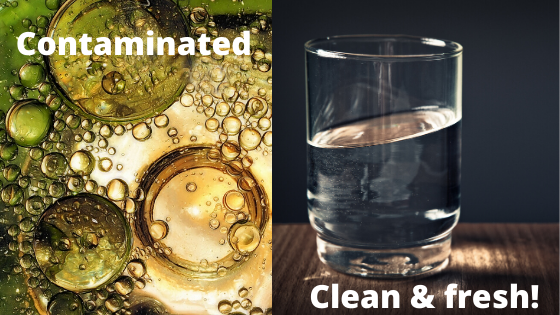Do Water Filtration Systems Block Forever Chemicals?

If you haven’t heard of forever chemicals in the drinking water of many parts of the country, you probably will. Homeowners around the nation are concerned about PFAS in their tap water and rightfully so. These forever chemicals, when consumed in large amounts, are harmful to our health. The problem is … well … let us explain below.
What are forever chemicals?
Per- and polyfluoroalkyl substances, or better known as PFAS, are a group of industrial chemicals that have often been used in consumer-sought products such as nonstick cookware, waterproof fabrics and food wrappers, just to name a few. They are named “forever chemicals” because they pretty much never biodegrade.
Are they dangerous?
Yes. This is what is causing concern. Exposure to some of the oldest and most studied PFAS has been linked to health issues such as high cholesterol, an increased risk for some specific cancers, and a reduced immune response.
How common are they?
These chemicals have been discovered in DOZENS of cities in the U.S. – affecting MILLIONS of Americans – according to a newer study released by environmental experts and advocates. There are nearly 5,000 chemicals in this family, but only a handful of them have been fully studied.
How do forever chemicals end up in our drinking water?
According to the Environmental Working Group, PFAS had not been “publicly reported by the EPA or state agencies” in 34 of the sampled locations where these chemicals were found. There are a number of reasons for this, they stated. Either these chemicals were not regulated, tested for, or reported, or there may be issues at a water treatment facility due to old systems or inefficient processes.
How can we protect our water?
Some advocates are making headway when it comes to regulating these chemicals. By the way, bottled water has the potential to also have PFAS, so don’t use it to replace your drinking water. More studies, more limitations, more testing and more regulations could be here soon for the areas that need them. But, with these types of changes, it takes TIME!
You may want to consider a water filter – but not just any one will do. You’ll need something strong like reverse osmosis technology that can handle getting these chemicals out of your drinking water. You deserve safe drinking water – free of forever chemicals!


